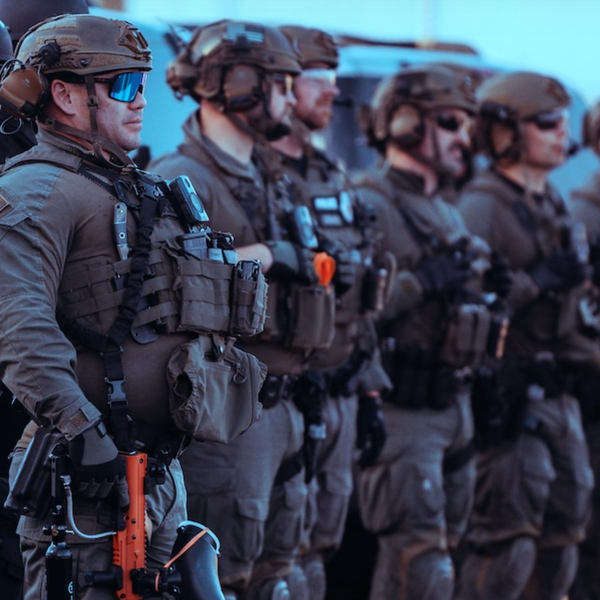DAMASCUS (AFP) – Syria expects a military attack “at any moment” and is ready to retaliate, an official said Saturday, hours after UN experts probing a suspected gas attack blamed on the regime quit the country.
The departure of the inspectors has opened a window for a possible U.S.-led strike after President Barack Obama on Friday gave his clearest indication yet that a military intervention was imminent.
“We are expecting an attack at any moment. We are ready to retaliate attack at any moment,” the security official told AFP, asking not to be named.
The 13 UN inspectors, led by Ake Sellstrom, left their Damascus hotel in a convoy before dawn and crossed into Lebanon a few hours later, AFP reporters said.
They are due to report straight back to United Nations chief Ban Ki-moon and detail their conclusions on whether a poison gas attack actually did take place in Damascus suburbs on August 21, based on samples collected on site.
Obama’s administration says it has no need to wait for the results of the probe, claiming its intelligence gives firm evidence the regime launched a chemical onslaught that killed 1,429 people, including at least 426 children.
That brought a contemptuous response from Russian President Vladimir Putin, whose country is a close ally of Syria, saying claims the regime had used chemical weapons were “utter nonsense” and demanding proof.
Obama said on Friday: “We cannot accept a world where women and children and innocent civilians are gassed on a terrible scale.”
“The world has an obligation to make sure we maintain the norm against the use of chemical weapons,” the president said, slamming the failure of the UN Security Council to agree on action.
Obama said he was looking at a “wide range of options” but had ruled out “boots on the ground” or a “long-term campaign.”
“We are looking at the possibility of a limited, narrow act,” he said, while stressing no final decision had been taken on unleashing military strikes against Bashar al-Assad’s regime.
Syria has denied responsibility for the alleged incident and has pointed the finger of blame at “terrorists” — its term for rebels ranged against Assad’s forces.
In Damascus, the mood was heavy with fear, and security forces were making preparations for possible air strikes, pulling soldiers back from potential targets.
The capital’s streets were largely empty on Saturday with few cars or pedestrians, although this is normal for the second day of the Syrian weekend.
Residents were seen stocking up with fuel for generators in case utilities are knocked out in any military strike.
The sound of bombardments in the distant suburbs could be heard, with the Syrian Observatory for Human Rights reporting shelling near Beit Sahem, on the way to the international airport; Al-Nabak in the north and in East Ghouta, one of the sites of the suspected poison gas attacks.
U.S. Secretary of State John Kerry cited “multiple streams of intelligence” indicating that the Syrian government had carried out the chemical attack and that Assad himself is the “ultimate decision maker”.
Kerry said failure to act would not only erode the nearly century-old norm against the use of chemical weapons, but would embolden Syrian allies Iran and Hezbollah.
Putin demanded proof.
“Regarding the position of our American colleagues, who affirm that government troops used… chemical weapons, and say that they have proof, well, let them show it to the United Nations inspectors and the Security Council,” he told journalists.
“If they don’t show it, that means there is none.”
Russia and Iran, and even some U.S. allies, have warned against any intervention, saying it risks sparking a wider conflict.
The United States, faced with an impasse at the Security Council and the British parliament’s shock vote Thursday, has been forced to look elsewhere forinternational partners.
While Germany and Canada ruled out joining any strikes, French President Francois Hollande — whose country stridently opposed the U.S.-led war on Iraq — said a British parliamentary vote rejecting participation would not affect his government’s stance.
Hollande said he and Obama “agreed that the international community cannot tolerate the use of chemical weapons, that it should hold the Syrian regime accountable for it and send a strong message.”
Turkey, Syria’s neighbour, went further still. It demanded not just surgical strikes to send a message about chemical weapons but a sustained campaign to topple the regime.
Gruesome pictures of some of the reported victims of the attacks, including children, have shocked the world and piled on the pressure for a response that could draw a reluctant West into the vicious Syrian civil war.
Five U.S. destroyers carrying hundreds of cruise missiles among them are believed to be in the eastern Mediterranean readying launches against Syrian munitions depots and command and control hubs.
U.S. forces are also stationed at air bases in Turkey, and long-range bombers could eventually be sent from bases in North America.
France has warplanes stationed in Abu Dhabi and Djibouti, and naval assets in the Mediterranean.
More than 100,000 people have died since the Syrian conflict erupted in March 2011, and two million have become refugees, half of them children, according to the United Nations.








